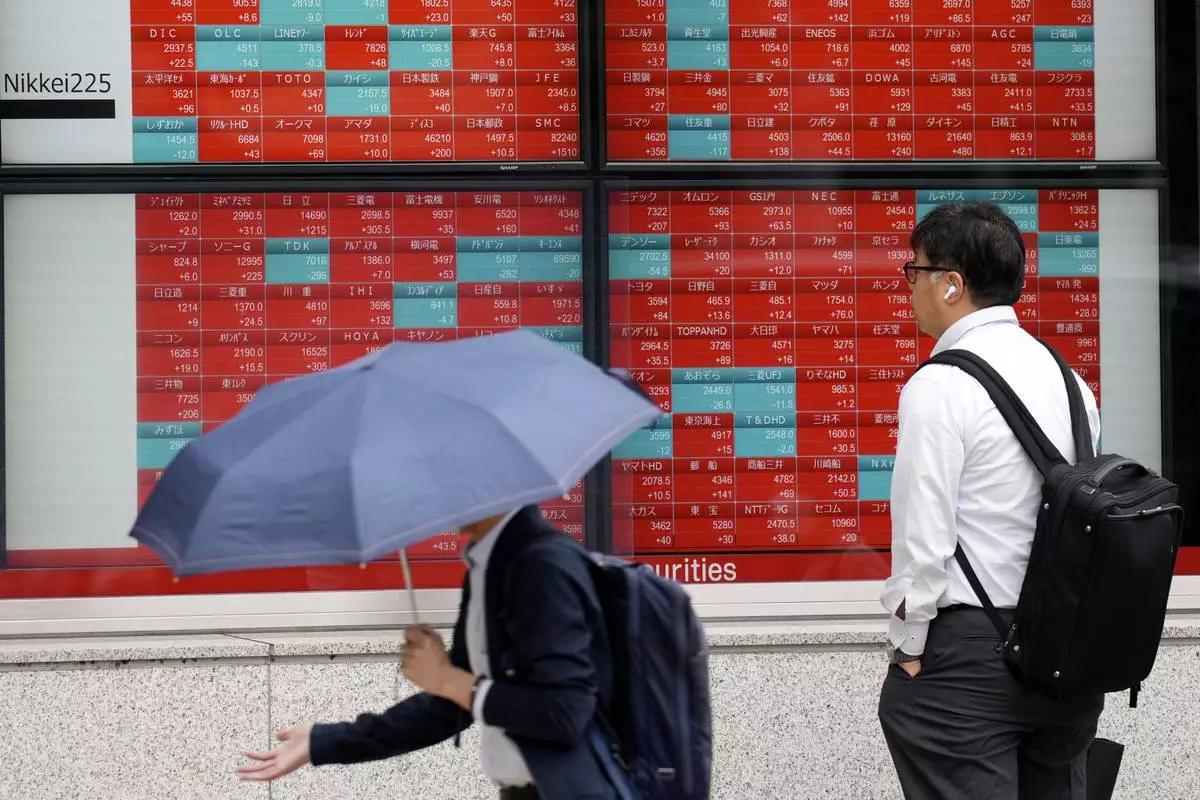TEMPE, Ariz. (AP) — Mullett Arena buzzed like few times in the two years since the Arizona Coyotes moved in, the fans amped for one last desert hurrah.
For 60 minutes, they got one last chance to watch the team they came to love before the franchise as they know it is no more.
The Coyotes are moving to Salt Lake City in a deal that could be signed less than 24 hours after Wednesday night's 5-2 win over Edmonton. Hockey could return, perhaps within five years, but the stark reality is this is the end for the foreseeable future.
“It's sad, it's upsetting,” said Ryan Travis, a Coyotes season-ticket holder since 2001. “I can’t believe it's finally come to an end. I can’t believe this is how it’s going to end.”
Coyotes fans had been dreading this moment, hoping it never would happen.
They remained loyal through multiple ownership changes. They followed the team to three different arenas. They shrugged off the near-constant relocation rumors.
Reality hit this week.
There will be a new owner. Utah Jazz owner Ryan Smith is expected to buy the franchise from current owner Alex Meruelo in a $1.2 billion deal through the NHL, as early as Thursday.
The team is moving. The deal, once signed and approved by the NHL Board of Governors, will turn over the franchise's hockey operations to Smith, who intends to move it to Salt Lake City.
There could be a new arena — eventually. Meruelo had been pursuing a tract of land in north Phoenix to build it. When delays pushed the land auction until June, the NHL and the players' association got cold feet about continuing to play at Mullett Arena, the loud-but-bandbox-sized venue shared with Arizona State University.
Meruelo was adamant about not selling the team despite constant offers since he bought in 2019, but also didn't want the players stuck playing in a 5,000-seat arena — by far the NHL's smallest — that wasn't up to league standards.
With no guarantee he would have an arena and with no other options, Meruelo agreed to sell the franchise.
The caveat: Arizona will get an expansion team if a new arena is built within five years.
A small light at the end of what will likely be a very long tunnel, but with far more darkness than hope.
“It’s been a hard 20-25 years, not knowing where home is going to be,” said Coyotes rookie Josh Doan, who grew up in the Valley during his father Shane's long tenure as Coyotes' captain. "It’s one of those things where you want to send them off on the right note and get the win tonight for them.”
The Coyotes gave their fans just that with the win over the Oilers.
As the players celebrated, the hockey staff poured onto the ice to join them for celebrations and a team photo. A few players tossed their sticks over the glass to fans and everyone passed hugs around as the fans started a chant of “We love you, Coy-otes!”
“It was a little different this morning,” Coyotes forward Clayton Keller said. “Even after the first couple of shifts, it felt weird. Being the last one was a little tough, but we were able to settle in and get going from there.”
It will be a bitter sendoff for the fans.
They rallied when the Coyotes unexpectedly reached the 2012 Western Conference Finals, but the desert has been dry outside of a trip to the NHL's 2020 postseason bubble.
Thanks to moves by general manager Bill Armstrong, the Coyotes appear to be headed back in the right direction. He blew up the team, jettisoning veterans for a slew of draft picks that became the core of a young, talented team.
With the move, Coyotes fans will now have to watch the rebuilding progress from afar instead of in their own backyard.
“Hopefully hockey comes back,” Travis said. "Hockey belongs in the desert. It's thriving right now with youth hockey, so hopefully this is just a pause, not an actual ending."
Pause or ending, Coyotes fans treated the final game at the Mullett with one big party — even if it was a wake.
—
This story has been updated to correct that the Coyotes moved into Mullett Arena two years ago instead of three.
AP NHL: https://www.apnews.com/hub/NHL

Arizona Coyotes fans start to find their seats at Mullett Arena prior to the team's NHL hockey game against the Edmonton Oilers on Wednesday, April 17, 2024, in Tempe, Ariz. The team is expected to be sold and moved to Sale Lake City. (AP Photo/Ross D. Franklin)

Arizona Coyotes fans start to gather for what is expected to be the franchise's final NHL hockey game in the Phoenix area, against the Edmonton Oilers, at the main entrance to Mullett Arena on Wednesday, April 17, 2024, in Tempe, Ariz. (AP Photo/Ross D. Franklin)

Arizona Coyotes fans start to gather for what is expected to be the franchise's final NHL hockey game in the Phoenix area, against the Edmonton Oilers, at the main entrance to Mullett Arena on Wednesday, April 17, 2024, in Tempe, Ariz. (AP Photo/Ross D. Franklin)











